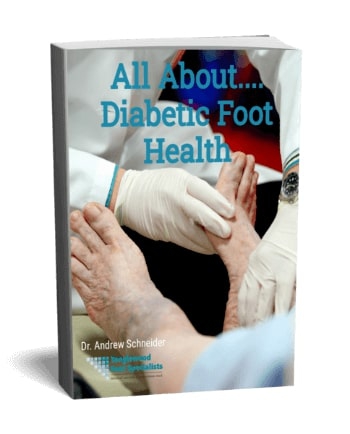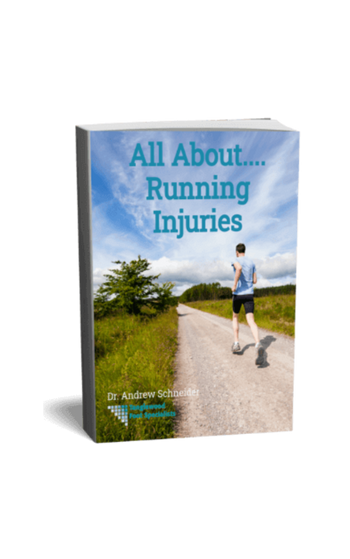If you’ve noticed that tingling in heels is a frequent problem, we know you’ll want answers. Now, several different conditions or lifestyle choices can trigger this unpleasant symptom. So you’ll have to come into the office for an accurate diagnosis. But, in the meantime, we can try to narrow down your problem, by reviewing the top contributors to tingling in heels. 
1) Neuropathy:
Especially for our patients with diabetes, this is the most common cause of tingling in your feet and heels. Neuropathy develops when you sustain damage to the nerves that deal with your extremities. That can be caused by high blood sugar levels or other issues. And it often leads to that unpleasant tingling. (It can also cause numbness, or sharp, burning pain. And some people say that neuropathy makes them feel like their feet are encased in wax.)
2) Plantar fasciitis:
When you have plantar fasciitis, it means that there’s inflammation in the connective tissue that runs from your heel to your midfoot. (It’s called the plantar fascia.) Typical symptoms include heel pain that’s worst when you first get out of bed. But, for some of our patients, plantar fasciitis also causes tingling in their heels.
3) Dietary issues
If you don’t get enough vitamin B12 in your diet, you may experience a host of unpleasant symptoms, including heel tingling. That’s because this crucial vitamin supports your nerve health. And tingling sensations are linked to nerve damage, as we learned with neuropathy.
4) Arthritis in your feet
Every form of arthritis can impact your feet. And, if the inflammation tied to this condition attacks the nerves around your joints, you may notice tingling in heels in addition to stiffness, pain and limited mobility.
5) Fibromyalgia:
If you’re noticing tingling on both sides of your feels, you may have fibromyalgia. (This condition can also leave you fatigued, in pain, and sensitive to touch.)
6) Overuse
Sometimes, that tingling in your heel is temporary. Maybe it shows up when you’re on the elliptical too long. Or it’s only a problem when you’re stretching out your calf muscles. If so, the impact of your workouts could be to blame. You see, when you train hard, calcium floods your bloodstream. Then, it can linger on your joints or tendons, causing a hardening called calcification. While temporary, this hardening can trigger heel tingling.
In some cases, extra tough workouts or very long runs can also make your tendons inflamed and swollen. As a result, there could be some nerve compression. And that can lead to temporary heel tingling that should clear up once the inflammation dies down.
7) Tendinitis
Like your plantar fascia, inflammation in your Achilles tendon can leave you with tingling in your heels. Often, that inflammation develops when you work out too hard or neglect stretching and rest days. Now, even when the Achilles tendon is only tight, it can make your foot bend backward as you walk. (This is called dorsiflexion.) That strange movement puts extra pressure on the nerve that runs beneath your heel. And that’s why your tingling heels could be associated with tendinitis.
8) Bad Shoe Choices
Wearing unsupportive shoes of any kind can leave you with heel tingling, especially if you’ve already got other contributing conditions. But there’s one pair of shoes that’s most likely to impact sensation in your feet, and those are high heels.
Why are these pointy torture devices so likely to cause trouble? Well, when you wear high heels for extended time periods, they put lots of pressure on the front of your foot. Unfortunately, the shift in pressure can impact your lumbar spinal nerve root. When that happens, you could develop a condition called sciatica. And that can leave you with numbness or tingling anywhere from your buttocks and thighs to your lower legs and even your heels.
Tingling in Heels: Is it Dangerous?
The answer to this question depends on what’s causing your symptoms. If you’ve got neuropathy, you’ll face an increased risk for amputation and even death. But if overuse injuries or plantar fasciitis are to blame? Well, in that case, your condition likely isn’t dangerous. Still, without treatment, your symptoms will remain uncomfortable. And you’re more likely to avoid movement. So, while tingling in heels isn’t usually life-threatening, it’s worth diagnosing and treating appropriately. Something we can only do if you come into the office at the first sign of trouble.
Getting the Right Diagnosis
With so many conditions that can trigger this painful symptom, self-diagnosis isn’t an option. Instead, it’s important to come and see us as soon as you notice a change in your foot or heel sensation. When you come in, you'll receive a physical exam, explain your recent medical and physical history, and discuss any other symptoms you’re experiencing. If necessary, we’ll order additional imaging tests—don’t worry, we offer in-office x-rays. Then, once we’ve gathered all the evidence, we’ll be able to accurately diagnose the cause of that tingling in heels that’s driving you crazy. Then, we can get to the good part: getting you some much-needed relief.
Treating Tingling in Heels in Houston ![help for tingling in heels]()
The best way to relieve this unwanted symptom is to address the underlying cause that’s making you suffer. If you have plantar fasciitis, that could mean rest, icing and regular stretching. (In many cases, we’ll also recommend orthotics, to keep your inflammation and symptoms from returning.)
What if overuse injuries are to blame? Well, we’ll come up with a safer training program for your preferred runs or workouts. Then, we’ll figure out a recovery schedule that keeps you active without making your tingling or other painful symptoms feel worse.
Are shoes to blame? Don’t worry, we won’t stop you from wearing your favorite heels all the time. But we will help you choose better-for-you high heels. And we’ll talk about limiting the amount of time you spend in your stilettos.
Finally, if diabetic neuropathy is to blame for your tingling heels, we can explore several ways to manage your symptoms. First and foremost, we’ll help you get your diabetes under control. We’ll also recommend ways to limit the progression of nerve damage and lower your risk for related complications. Then, we’ll look at ways to reduce your discomfort, whether that’s by adding specific vitamins to your diet or by exploring other neuropathy treatments.
Of course, we can’t help you if you don’t come into the office. For that reason, we’ll leave you with this last piece of advice. If you need help for tingling heels, staying at home won’t change your situation. Instead, the best way to find relief is to make an immediate appointment at our Houston podiatry practice.






















